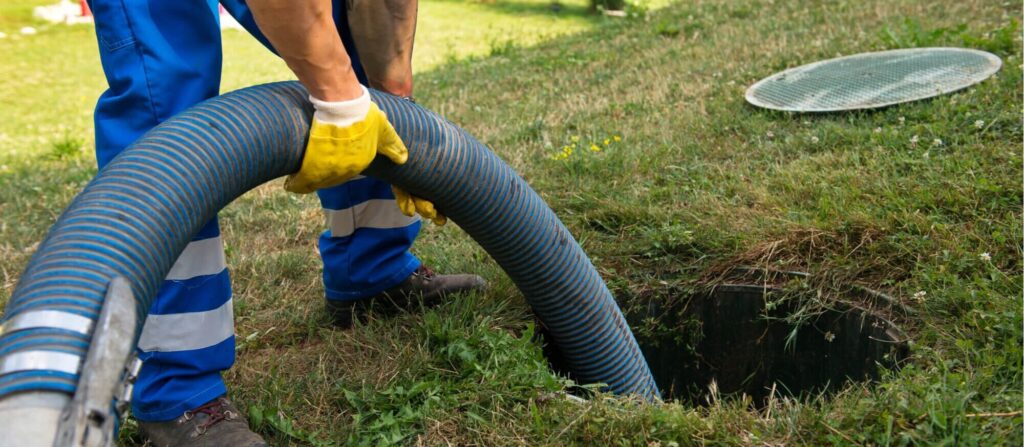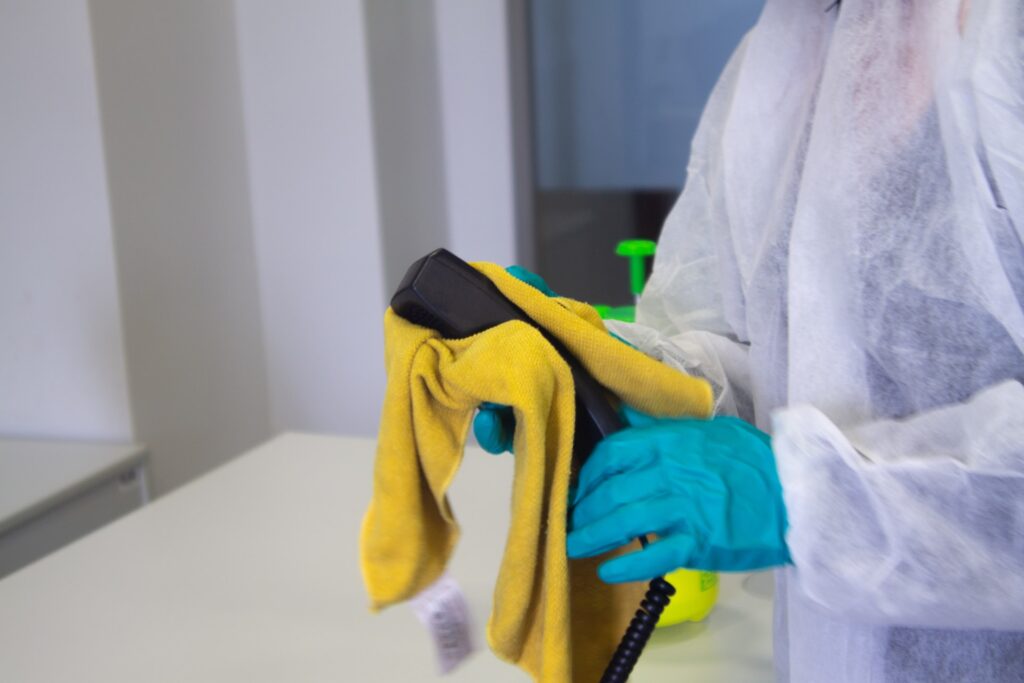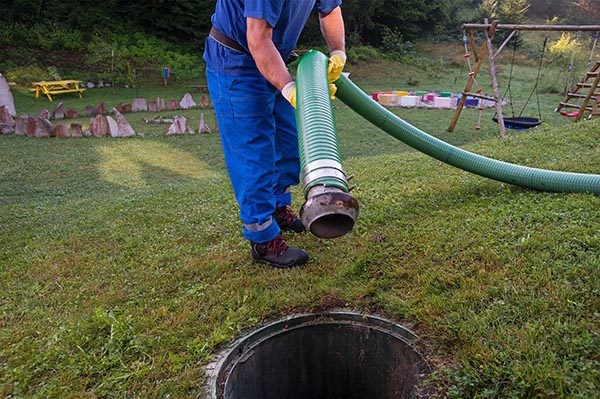Septic tanks are a necessary part of any home or property’s septic system. They are in charge of storing and sorting trash, which is then moved safely to a drain field to be treated further. But, just like any other machine, septic tanks can have problems that need to be fixed or cleaned. For your septic system to stay healthy and last as long as possible, you need to know how to spot problems and fix them before they cost you money to fix.
Common Problems with Septic Tanks
Septic tanks are an important part of any septic system. They are where waste is stored and broken down. But, just like any other machine, septic tanks can have problems that need to be fixed. For your septic system to stay healthy and last as long as possible, you need to know what the most common problems are and how to fix them.
Overflow:
Overflow is one of the most common problems with septic tanks. When the septic tank is too full, waste can overflow into the drain field. This can damage the system and possibly pollute the soil and water nearby. This can happen for a number of reasons, such as a lack of maintenance, an oversize tank, or a drain field that isn’t big enough. For example, if the septic tank isn’t pumped out regularly, the waste can start to build up and eventually overflow into the drain field. Also, an overflow can happen if the drain field isn’t big enough to hold all of the waste that the septic tank makes. To keep the tank from overflowing, it’s important to pump it every two to three years and make sure the drain field is the right size for the tank.
Clogs:
Clogs are also a common problem with septic tanks. The inlet and outlet pipes of septic tanks can get clogged, which can stop waste from moving through the system properly. Buildups of grease, hair, or other things can cause these clogs. For example, if grease is poured down the drain, it can solidify and clog the inlet pipes, which keeps waste from going into the septic tank. In the same way, if hair gets washed down the drain, it can clog the pipes that let waste out of the septic tank. To keep drains from getting clogged, you should not pour grease down the drain and you should put hair traps in showers and sinks.
Leaks:
Another problem that septic tanks can have is that they can leak. Leaks can also happen in septic tanks, which can let waste escape and contaminate the soil and water around it. Leaks can be caused by many things, like corrosion, shifting ground, or damage to the tank itself. For instance, if the septic tank is made of a material that rusts easily, it might start to leak over time. Also, if the ground under the septic tank moves or settles, it can put pressure on the tank and cause it to leak. To keep the septic tank from leaking, it’s important to have it checked out regularly and fix any problems that are found.
Back Up:
Another problem that can happen with septic tanks is that they can back up. If the septic tank isn’t pumped out regularly, the waste can start to back up into the house or garden, causing bad smells and possible health risks. For example, if the trash backs up into the house, it can make the house smell bad and could also be bad for your health. It is important to pump the septic tank every two to three years to keep it from getting backed up.
In conclusion, there are many problems that can happen with septic tanks, such as backups, overflows, clogs, and leaks. It’s important to know about these problems and do what needs to be done to stop them. Regular maintenance, like pumping and checking, can help keep these problems from happening and make sure the septic system works well. If you see any signs of a problem with your septic tank, you should call a professional as soon as possible so that the problem can be fixed before it gets worse.
Signs Its Time For A Septic Tank Clean
For your septic system to stay healthy and last as long as possible, you need to know how to spot problems. Some of the most common signs that something is wrong with a septic tank are:
Stinky smells:
If your septic system has a strong, unpleasant smell, it could mean that something is wrong. This could be caused by a number of things, such as an overflowing septic tank, a clogged drain field, or a backup in the system. The smell may be stronger near the septic tank or drain field, and it can get worse if nothing is done about it.
Slow drains:
If your sinks, toilets, or other fixtures take a long time to drain, it could mean that the septic tank or drain field has a clog or blockage. This can happen when grease, hair, or other things get stuck in the pipes and stop the waste from moving through the system properly. If your drains are slow, you should fix the problem as soon as possible to stop more damage.
Yard with wet spots:
If you see wet spots in your yard, it could mean that your septic tank or drain field is leaking or overflowing. This could be caused by a damaged or corroded septic tank, a clogged drain field, or a drain field that isn’t big enough. Wet spots in the garden may have a strong smell and can also be dangerous to your health if you don’t fix them.
Pooling water:
If you see water pooling near the septic tank or drain field, it could mean that something is wrong with the system. This could be caused by a drain field that is clogged, a septic tank that is broken, or a septic tank that is full. If you don’t fix it, water that pools can also cause bad smells and health problems.
Backups:
If the septic tank isn’t pumped out often enough, the waste can start to back up into the home or property, which can smell bad and could be dangerous for your health. Back-ups can happen in sinks, toilets, and other fixtures, and if they aren’t fixed right away, they can cause serious health problems.
Gurgling sounds:
If the pipes are making gurgling sounds, it could mean that the septic system isn’t working right. The sounds come from the air in the pipes, and they can be a sign that there is a blockage or clog in the system.
Issues with flushing:
If the toilet flushes slowly or not at all, it could be a sign of a problem with the septic system, like a clogged drain field or a broken septic tank. It is important to take care of this problem as soon as possible to keep the septic system from getting worse and to avoid possible health risks.
Also, it’s important to remember that different types of septic systems may show different problems in different ways. For example, if you have an aerobic septic system, you may notice that the aerator motor is making loud noises or that the system isn’t making any effluent. These are signs that the system might need to be fixed or maintained.
Having your septic system inspected regularly can also help you find problems before they get worse. A professional septic service provider can check the septic tank and drain field for signs of damage or wear and tear and make suggestions for repairs or maintenance as needed.
Maintenance Is Key
Not only is it important to know the signs of a problem with your septic tank, but it is also important to take preventative steps to keep your septic system running well. This means doing regular maintenance, like pumping the septic tank every two to three years, and not doing things that can hurt or clog the system, like flushing things that don’t break down or pouring grease down the drain.
More Use Means More Cleaning Is Necessary
Also, you should be careful about how you use your septic system. If you put too much water or waste in your septic tank, it can start to have problems. For example, if you have a big family or often have people over, you might need to pump your septic tank more often or think about getting a bigger one.
In conclusion, if you know the signs of a problem with your septic tank and take preventative steps, you can make sure that your septic system works well and avoid expensive repairs or replacements. Keeping an eye on how you use your septic system and having it inspected and maintained regularly can also help you avoid problems with your septic tank. If you see any signs of trouble with your septic tank, you should call a professional septic service provider as soon as possible to fix the problem and make sure your septic system lasts and works well.
How Often Should Your Septic Tank Be Cleaned?
Maintaining a septic system is important if you want it to work well and last for a long time. Keeping the septic tank clean is one of the most important parts of maintaining a septic system. But how often should a septic tank be cleaned?
On average, septic tanks should be cleaned and pumped out every two to three years. This depends on the size of the septic tank, how many people live in the house, and how often the system is used. For example, a larger septic tank or a home with a bigger family may need to be cleaned and pumped more often than a smaller tank or a home with fewer people living in it. Also, if the septic system is used a lot, like in a house with a lot of guests or a business, it may need to be cleaned and pumped more often.
Prevention Is the Best Cure
It’s important to clean the septic tank often so that solids and scum don’t build up and cause clogs and backups in the system. Solids that build up in the septic tank can also cause it to overflow, which could damage the drain field and contaminate the soil and water nearby.
Talk To A Professional
Talking to a professional septic service provider is the best way to figure out how often you should clean your septic tank. They can look at the size of your tank, how often you use the system, and anything else that might affect how often it needs to be cleaned. It’s also important to keep track of the last time the tank was cleaned and pumped, so you can plan when the next cleaning will be. Or you want to clean it yourself check out our recommended septic tank cleaning products.
Avoid Flushing Objects That Don’t Break Down
In addition to cleaning the septic system regularly, it is important to take care of it by not flushing things that don’t break down, being careful about how much water is used in the home, and not doing things that can damage the septic system, like driving a heavy vehicle or piece of equipment over the drain field.
In conclusion, how often you need to clean your septic tank depends on things like the size of the tank, how often you use the system, and how many people live in the house. On average, septic tanks should be cleaned and pumped every two to three years, but a professional septic service provider can help you figure out the right schedule for your system. Your septic system will last longer and have fewer problems if you clean it regularly and take care of it well.
How to Fix Problems with Septic Tanks
If you are having problems with your septic tank, you should call a professional as soon as possible. They’ll be able to figure out what’s wrong and suggest the best way to fix it, which may include:
Pumping:
Septic tanks should be pumped every two to three years to get rid of waste and keep them from overflowing.
Repairs:
The septic tank or drain field may need to be fixed or replaced if they are broken.
Maintenance:
Regular maintenance, like having the system inspected and cleaned, can keep a septic tank from having problems.
Upgrades:
You may need to upgrade your septic system if it is old or too small for the size of your home or property.
Frequently Asked Septic Tank Cleaning Frequency Questions
Some of the most common problems with septic tanks are backups, overflows, clogs, and leaks. When the septic tank is too full, waste flows out into the drain field. This is called an overflow. Inlet and outlet pipes can get clogged, which stops waste from moving through the system properly. When the septic tank has a leak, waste can get out and contaminate the soil and water around it. When the septic tank isn’t pumped out regularly, waste can back up into the home or property. This is called a backup.
Strong smells, slow drains, wet spots in the yard, pools of water, backups, gurgling sounds, and problems flushing are all signs that something is wrong with your septic tank. Strong smells could mean that your septic tank is overflowing or that there is a backup in the system. Slow drains can be a sign that the septic tank or drain field is clogged or blocked. Wet spots in the yard could mean that the septic tank or drain field is leaking or overflowing. When water pools, it could mean that there is a problem with the septic system. Sinks, toilets, and other fixtures can all back up. If the pipes are making gurgling sounds, it could mean that the septic system isn’t working right. Problems with the toilet could mean that there is a problem with the septic system.
On average, septic tanks should be cleaned and pumped out every two to three years. This depends on the size of the septic tank, how many people live in the house, and how often the system is used. You should talk to a professional septic service provider to find out how often your septic tank should be cleaned.
Final Thoughts
A septic system isn’t complete without a septic tank. If you want your septic system to stay healthy and last as long as possible, you need to know how to spot problems and how to fix them. If you see any signs that something is wrong with your septic tank, you should call a professional as soon as possible. Maintaining, pumping, fixing, and upgrading your septic system on a regular basis can help keep it running well and prevent problems with your septic tank.
Septic Tank Cleaning Whangarei can help with all your septic tank and Whangarei drain unblocking problems. Contact us today!
About the Author:
Mike Veail is a recognized digital marketing expert with over 6 years of experience in helping tradespeople and small businesses thrive online. A former quantity surveyor, Mike combines deep industry knowledge with hands-on expertise in SEO and Google Ads. His marketing strategies are tailored to the specific needs of the trades sector, helping businesses increase visibility and generate more leads through proven, ethical methods.
Mike has successfully partnered with numerous companies, establishing a track record of delivering measurable results. His work has been featured across various platforms that showcase his expertise in lead generation and online marketing for the trades sector.
Learn more about Mike's experience and services at https://theleadguy.online or follow him on social media:



